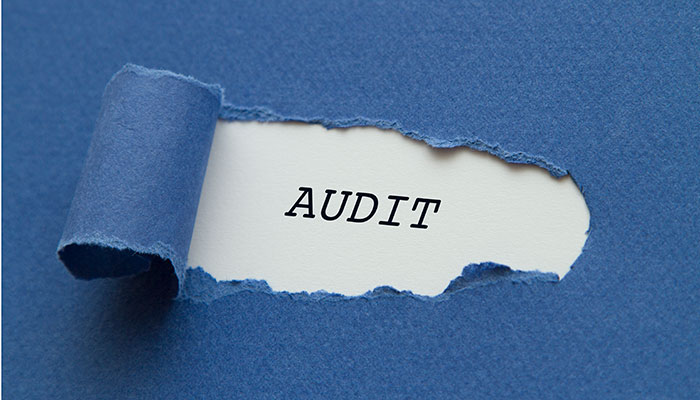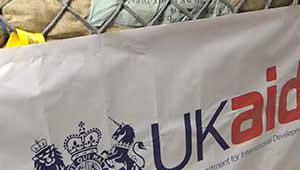
The audit of local public bodies matters. It is a vital check and source of assurance in our systems of local democracy and public accountability. In addition to an independent professional opinion on the financial statements of organisations spending billions in public money, local audit provides an annual conclusion about the adequacy of arrangements for securing value for money (VFM). It also gives the auditor a range of special powers to highlight matters of significant concern and, in local government, empowers electors to inquire and/or object to items within the accounts.
It is easy to slip into the mindset that local audit exists for the benefit of management and (in the jargon of auditing standards) those charged with the governance of relevant public bodies. On the contrary its primary purpose is to work on behalf of local electors and taxpayers for whom it provides a level of assurance about whether organisations are managing their affairs and stewarding public money appropriately.
Keen observers will be aware that a new system of local audit is currently being rolled out in England. I am tempted to add “at last” because the journey has been protracted. The abolition of the Audit Commission was announced in 2010; the commission closed its doors in 2015; and for the three succeeding financial years local authorities have continued to be audited under contracts let by the commission prior to its demise. Audits of local authority and police body accounts in respect of 2018-19 will therefore be the first undertaken under the new regime put in place by the Local Audit and Accountability Act 2014. The new landscape includes a large proportion of local authorities – more than 98% – that have chosen to join the sector-led appointing person scheme run by Public Sector Audit Appointments Ltd (PSAA) and a handful of bodies that have opted to make their own local auditor appointments. In contrast, there is no collective scheme option for NHS bodies, all of which therefore make their own local appointments.
[There is] a timely opportunity to step back and examine the new system of local audit and consider how and where it can be further strengthened and improved.
Having reached this watershed, we might in theory be now looking forward to a period of relative calm and stability. If only! In practice there are continuing pressures and new challenges which need to be addressed to future-proof and maximise the effectiveness of the new model. First, the environment is turbulent and testing: audited bodies continue to deal with all of the problems posed by austerity while audit firms grapple with fallout and criticism arising from a spate of controversial financial failures in the private sector. Secondly, a variety of important reports discussing aspects of local audit are either already available or else in the pipeline.
Although it may seem counter-intuitive to review a new model whilst it is still being rolled out, these conditions do provide a timely opportunity to step back and examine the new system of local audit and consider how and where it can be further strengthened and improved. The work of the past three or four years provides firm foundation on which to build. We should therefore be confident and open-minded about examining new ideas and recommendations and implementing improvements where the evidence to do so is strong.
Sir John Kingman’s
So what are the key issues that need to be addressed to strengthen and future-proof local audit and ensure that it continues to support effective local public accountability?
In my view the top three challenges are:
1. Maintaining a competitive market for local audit services into the long term
The Cardiff Business School report discusses this issue and, for me, it is our most critical challenge. For decades audit firms have played important roles in public audit throughout the UK, invariably supporting the work of a well resourced state audit body. For example, prior to 2012, firms carried out 30% of local audits within the Audit Commission's jurisdiction; the remaining 70% were carried out by the commission's own audit teams. In the new local audit arrangements in England there is no equivalent state auditor. Clearly this significantly increases the reliance placed on the market to deliver our long term requirements: high quality, affordable audits carried out by suitably trained and experienced staff who understand the distinctive nature and character of both public bodies and local audit. We should recognise too that these requirements have been made more challenging for audit suppliers by the timetable of early accounts closure that creates an unforgiving peak resource demand in an ever-smaller window for delivery.
PSAA has begun to navigate this new environment using the levers at its disposal – for example, the Social Value legislation has enabled us to secure commitments from firms to create 400 finance apprenticeships during the lifetime of current contracts. This begins to grow next generations of public auditors some of whom will hopefully become the public audit leaders of the future. But there is more to do to make absolutely sure that the local audit market remains attractive to firms and continues to meet sector and stakeholder needs for the long term.
Audit quality is a shared responsibility of every player in the financial reporting supply chain, not least audited bodies themselves
2. Ensuring that audit quality is continuously improved
PSAA has already done lots of work in this space. We very consciously placed an increased emphasis on quality in evaluating tenders in respect of our new audit contracts. We have also bound the method statements provided by firms as part of their bids into contracts so that they can be monitored and contractually enforced. Additionally, we have developed a new basis for monitoring and reporting publicly on the performance of our contracted firms. Our model builds on the Framework for Audit Quality developed by the International Audit & Assurance Standards Board (IAASB) which identifies more than 30 attributes which contribute to a quality audit. We plan to use a variety of methods – including surveying the front row views of both chief financial officers (CFOs) and chairs of audit committees – to test whether those attributes are present in local audits and in particular to confirm whether the audits meet contractual requirements, comply with all of the relevant professional standards and guidance, and are underpinned by positive auditor-client relationships.
It is important to add that audit quality is not the sole responsibility of PSAA or firms or regulators. It is a shared responsibility of every player in the financial reporting supply chain, not least audited bodies themselves – particularly local audit committees. That is why PSAA has established the Local Audit Quality Forum with a special emphasis on helping local audit committee chairs and CFOs to perform their roles effectively to help to assure quality at the local level.
Audit fees have reduced significantly since the announcement of the commission’s abolition, in part because a number of its activities and associated costs no longer apply. However, for those who worry that reduced fees must lead inexorably to reduced quality let me try to offer some reassurance. First, in our own work to evaluate tenders we have not detected any notable correlation between price and quality. Secondly, the measures that PSAA has already taken will lead to tighter monitoring while open public reporting of results should incentivise firms to maintain high standards and address any shortcomings robustly. Thirdly, if local audit committees can be equipped to perform their roles more effectively, we should see further progress and improvements over time.
3. Enabling the local audit system to operate seamlessly
There is no doubt that the structure of the new system of local audit is more complex than predecessor arrangements. A series of organisations have specific responsibilities within the new framework and that brings with it a risk of fragmentation. Smooth, seamless operation of the whole system can undoubtedly be achieved but it cannot be taken for granted. We need to create stronger mechanisms to oversee and provide leadership and co-ordination to the whole system. We also need to work hard to ensure that all of the players are engaging in a joined-up, collaborative effort to meet agreed goals and to deliver the best possible outcomes in the public interest.
Each of the three issues highlighted requires careful consideration in order to enable the development and implementation of effective, robust solutions. With commitment from all parties, we can do that work and begin putting key improvements in place in short order, in the process strengthening the system so that it is demonstrably fit for purpose and well equipped to continue delivering for the sectors and stakeholders concerned for the long term.



















